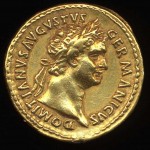Plot Summary
Set in the reign of the Emperor Domitian in First Century Rome, Master and God is meticulously researched and narrated with serious ambition. We know Domitian killed flies with his pen – how did a fly view this? Who killed the dancer – and was it illegal? Trajan’s column denigrates the barbarian Decebalus – but what chance Europe could have had a Dacian Empire instead? What snacks should be served at a high-powered committee meeting summoned to discuss shedding the ruler it is charged to protect? When a Chief Vestal Virgin is buried alive for adultery, what are the logistics to ensure there are no riots? What kind advice would a female friend give to a Roman soldier who has committed bigamy by accident while in the throes of alcoholism and impotence, at the same time as he is organising a political death squad under a loathsome regime that threatens her personal friends and her divorced husband?
This novel’s reach stretches from the glories of monumental Rome to a prisoner-of-war camp above the snowline the wrong side of the frontier. Its settings include barracks and bars and quiet domestic rooms, the fabulous Flavian palace on the Palatine, Domitian’s fortress villa at Alba Longa, a villa that may have belonged to the poet Horace. It scoffs equally at the military life and poets. Even the doctor is paranoid.
Gaius Vinius Clodianus is a reluctant Praetorian Guard, with a disastrous marriage history and post-traumatic stress – but he is a hero. Flavia Lucilla has given the imperial ladies a ridiculous hairstyle and makes toupees for the increasingly paranoid emperor – and she is good at her job. A devastating fire in Rome starts their story then a shared apartment brings them together, leading to a lifelong friendship, passion and love.
Together they watch Domitian’s once talented rule unravel into madness and cruelty, until the people closest to the Emperor conspire to delete him from history. As an imperial bodyguard, Gaius then faces an impossible dilemma, where the bloody outcome inevitably threatens his and Lucilla’s hopes of a future together and even their lives.

Reviews
This is a novel of depth and intelligence and, in places very dark – madness, random murders and burying the Chief Vestal Virgin alive – are never going to be a laugh a minute. But the author’s trademark wit, wry observations and lightness of touch keep it skimming lightly along. More books like this and we’ll hardly miss Falco at all. The Northern Echo
Davis displays her fascinating panorama of knowledge of the ancient city in all its filth and glory. The narrative is rapid and the story well told with much sharp-edged detail. You can step right into a convincing yet extraordinary past. Just mind the overflowing gutter and the stray dogs. And stay clear of homicidal emperors. The Independent
Lovers of fly literature will be in heaven. reviewingtheevidence.com
The trademark charm, piercing intelligence and ready wit are as abundant as ever. Bookbag
Davis characterises the lovers with understanding and sympathy but her real skill is to weave an immensely engaging saga of the ancient world which is, conversely, as contemporary as any novel set in our century. The sense of period here is as acute as anything in the Falco novels. It combines a wealth of teeming historical detail with storytelling elegance of the first order. Readers may love the Falco novels but if Davis continued to produce only standalones such as this there would be very few complaints from her fans.
Daily Express
Note on the UK audiobook:
This version is probably not like any other audiobook! The narrative is divided up (by Lindsey) in a way nobody has tried before; if you are used to conventional audiobooks you should be prepared. There are long passages where one voice tells everything in the usual way. Then conversations between Gaius and Lucilla are a kind of drama. As the book goes on and the main characters come together, the whole story is a dialogue for two voices, just as it is narrated in the printed version. It’s not dramatised formally: all the text is there, but it is something special.The readers are Jonathan Keeble (known to Radio 4 listeners as Titus in the Falco adaptations) and Clare Corbett.
